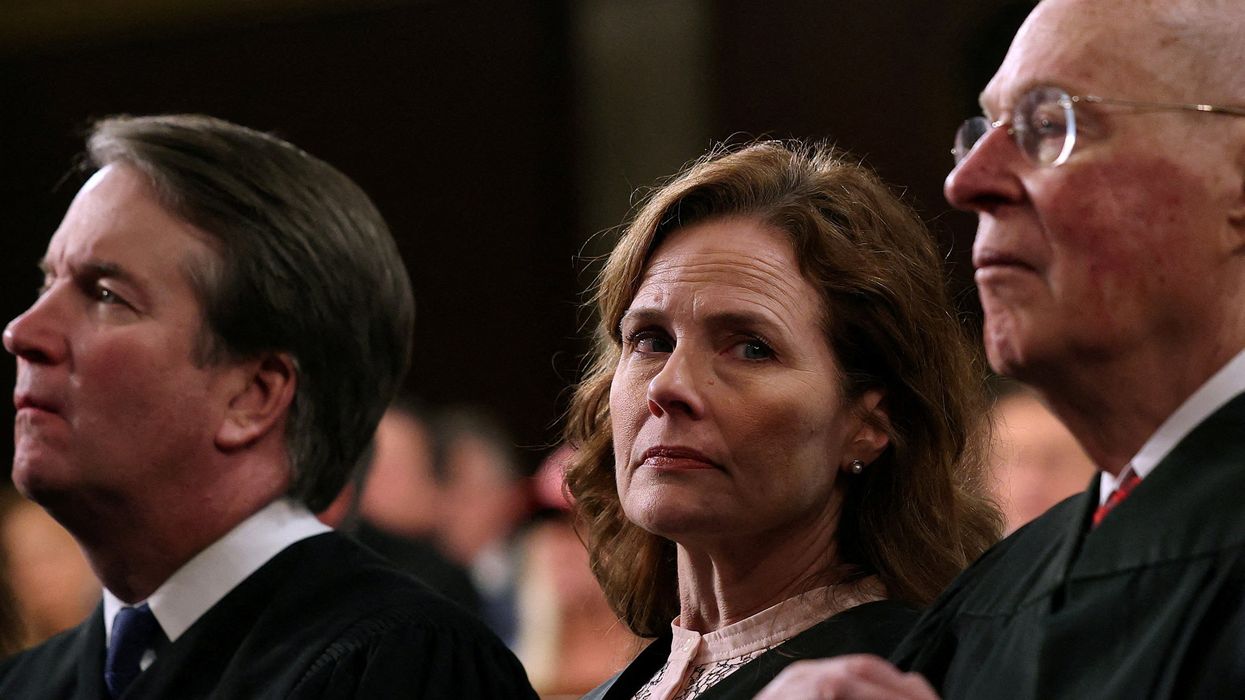After Justice Lewis F. Powell Jr., a Richard Nixon appointee, announced his retirement from the U.S. Supreme Court in 1987, President Ronald Reagan struggled to get a nominee confirmed. Reagan's first nominee, Robert Bork, was rejected in a U.S. Senate vote, and his next nominee, U.S. Circuit Judge Douglas Ginsburg, withdrew from consideration after admitting to marijuana use.
But after Reagan nominated Anthony Kennedy, the U.S. Senate confirmed him, 97-0, in a unanimous February 1988 vote. Not a single Senate Democrat voted against Kennedy.
Although Kennedy was a right-wing Republican, Senate Democrats liked what they heard during Kennedy's confirmation hearings — especially his comments about civil liberties. And the Reagan appointee proved to be a strong defender of gay rights during his 30 years on the High Court, from Lawrence v. Texas to Obergefell v. Hodges.
In an op-ed published by the New York Times on October 6, Kennedy emphasizes the need to be vigilant about protecting civil liberties during turbulent times.
"Upon getting settled at the Court," the 89-year-old Kennedy recalls, "one of the first things that interested me was that my chambers looked out the front of the building. This vantage point let me see visitors of various ages and from many places. They would pause with obvious respect and often stood quite still before the words above the marble columns, 'Equal Justice Under Law.' The phrase was — and still is — an impressive reminder of the justices' function on the Court, but it also presented a puzzle for me: Where did it come from? It doesn’t appear in the Constitution or any of its amendments."
Kennedy continues, "It is true that it is close to the language in various Supreme Court cases, but it still was difficult to pinpoint the origin exactly. Research led to the correspondence file of Charles Evans Hughes, who was the chief justice at the time the building was near completion…. The fact that this great phrase was made up by architects and not by a judge or a legal scholar should hardly be grounds for rejecting it."
Hughes, Kennedy stresses, "was dead right" about the need for "equal justice under law."
"Equality is a central concern in many cases, and there are other basic rights as well," Kennedy writes. "Equality and those rights must be essential parts of a constitutional democracy. In the law — and in our moral realm — no one must be disadvantaged by reason of religion or creed, ethnicity, race, national origin, sex or other characteristics. Our Supreme Court should strive to give all the opportunity to use their talents and skills to create and to lead the lives they wish for themselves and their families…. The architects' judgment, seconded by Hughes, was eminently sound."
Kennedy adds, "The phrase stays on the building as a warning to judges not to lose sight of the idea and as an aspiration for a society committed to social justice."
Retired U.S. Supreme Court Justice Anthony Kennedy's full New York Times op-ed is available at this link (subscription required).


